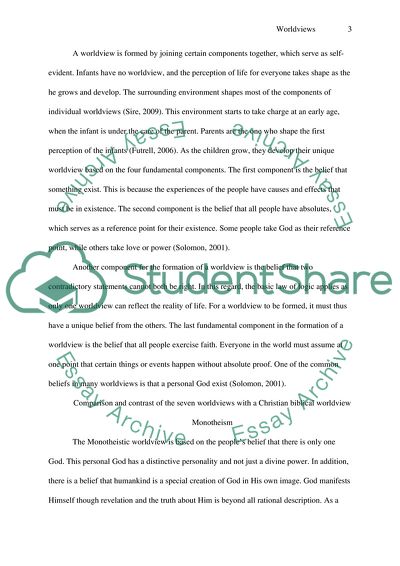Cite this document
(Christian Biblical Worldview Literature review Example | Topics and Well Written Essays - 2750 words, n.d.)
Christian Biblical Worldview Literature review Example | Topics and Well Written Essays - 2750 words. https://studentshare.org/religion-and-theology/1758566-worldviews
Christian Biblical Worldview Literature review Example | Topics and Well Written Essays - 2750 words. https://studentshare.org/religion-and-theology/1758566-worldviews
(Christian Biblical Worldview Literature Review Example | Topics and Well Written Essays - 2750 Words)
Christian Biblical Worldview Literature Review Example | Topics and Well Written Essays - 2750 Words. https://studentshare.org/religion-and-theology/1758566-worldviews.
Christian Biblical Worldview Literature Review Example | Topics and Well Written Essays - 2750 Words. https://studentshare.org/religion-and-theology/1758566-worldviews.
“Christian Biblical Worldview Literature Review Example | Topics and Well Written Essays - 2750 Words”. https://studentshare.org/religion-and-theology/1758566-worldviews.


